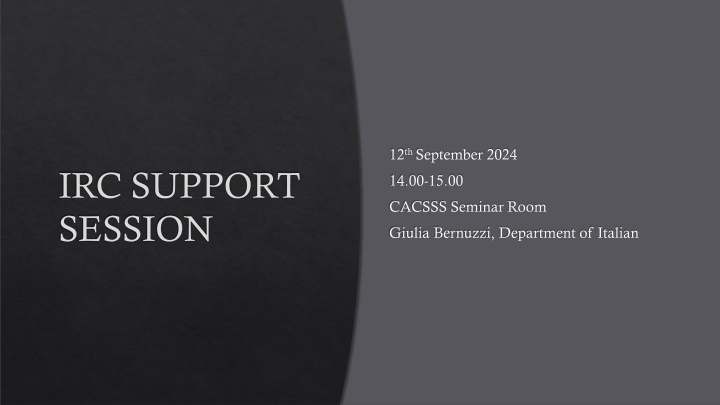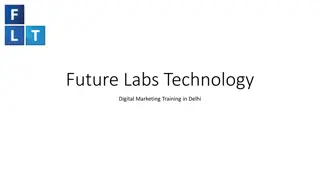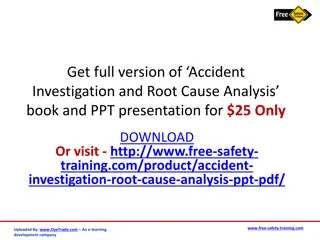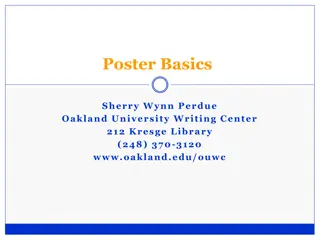
Optimizing Your IRC Scholarship Application for Success
Learn how to prepare and structure your IRC scholarship application effectively. Discover tips on highlighting your qualifications, career goals, and expertise to secure funding for your research endeavors. Find guidance on presenting your achievements and outlining a compelling career training plan.
Download Presentation

Please find below an Image/Link to download the presentation.
The content on the website is provided AS IS for your information and personal use only. It may not be sold, licensed, or shared on other websites without obtaining consent from the author. If you encounter any issues during the download, it is possible that the publisher has removed the file from their server.
You are allowed to download the files provided on this website for personal or commercial use, subject to the condition that they are used lawfully. All files are the property of their respective owners.
The content on the website is provided AS IS for your information and personal use only. It may not be sold, licensed, or shared on other websites without obtaining consent from the author.
E N D
Presentation Transcript
12th September 2024 IRC SUPPORT SESSION 14.00-15.00 CACSSS Seminar Room Giulia Bernuzzi, Department of Italian
BEFORE WRITING 1 2 3 4 5 Familiarize yourself with the structure of the application form and with the IRC platform Carefully review the key dates (ex. Student submission, supervisor submission etc.). Plan regular meetings with you supervisor(s) to actively discuss your application. Ask your supervisor for models from preivous successfull applicants. Take your time to prepare > write down some notes.
Try to make it easy, flowing and not too technical > your reviewers might not be familiar with your topic > your language has to be accessible It has to be your own Divide your answers using bullet points and leave blank spaces in between them STYLE Use capital to direct attention Avoid any vagueness (ex. Could, should, would) and be as precise as possible > show that you are sure and confident of what you are stating Use the first singular person, I
Undergraduate and Master Qualifications > highlight a research path that is coherent with the topic you are proposing. Divide your answer in paragraphs (ex. Areas of study, dissertation, workshops, skills etc.). Other education > in order of importance. Use bullet points. Ex. Language certificate, courses in a specific area (publishing courses, teaching methodology etc.), prizes (best thesis award). Research achievement > in order of importance. Use bullet points (ex. Publication, conference papers). Work experience > write only experiences related and/or useful for your research + explicit why and how are relevant. TRACK OF RECORDS
Career goals > apply for Post-Doctoral career (IRC Postdoctoral Fellowship Programme in Ireland, or an MSCA fellowship) + teach in Department. Expert knowledge and skills > how you ll grow at UCC > reference to the library, the SLLC (School of Languages, Literatures and Cultures) interactions with staff and researchers, seminars and events of research clusters, radical humanities laboratories, participate at conferences, archives, organize events Beyond academia > 2/3 alternatives Scholarship > catchy final sentence stating the importance of the IRC Scholarship to pursue all of this (ex. The financial support of the IRC would allow me to focus on my research as well as on my career goals both within and outside academia. It would allow me to gain relevant training and skills while improving my level of English and developing an international research network. It would be essential to cover the costs of travel necessary to disseminate my research findings, to carry out research and to locate useful material both in Italy and in Ireland. Finally, an IRC scholarship would be a prestigious acknowledgment of the value of my research project ). CAREER TRAINING AND DEVELOPMENT PLAN
Abstract > intro to the topic and collocation within the field + corpus and how you will work with it + methodology + expected results. Aims > broad (ex. To examine the relationship between narrative, space and climate change/to conduct a detayled analysis of ). PROPOSED RESEARCH Objectives > specific, they allow you to answer to your research questions (ex. To demonstrate how Italian literature can contribute to the global discourse on climate change and its effects on urban space). Research questions > 2-5 questions that resonates with your aims and objectives + you have to be able to answer them. The field > make specific references to existing literature and be precise in saying how you will advance the state of the art (ex. My research will address a significant gap /To my knowledge, no comprehensive study has critically combined /My project contributes to the discourse on by , thus emphasizing ).
METHODOLOGY Specific sections addressing the theoretical areas you ll use > ex. Ecocriticism, spatial theory, philosophical and sociological theory, genre criticism etc. First paragraph more general > is it interdisciplinary? If so, state how. Will it be quantitative or qualitative? Will you use digital tools as well? Why and how? Provide names, titles and dates for each sections proving that you are familiar with what you are describing and that you know how to use it.
!!! WHY YOUR SUPERVISOR AND UCC Supervisor > you have to convince them that she/he is the most suited person to guide you > research expertise in your area of research (quote publications, courses taught, conferences organized and attended) + how many successfull PhD students he/she followed/is following. UCC > you have to convince them that UCC is the most suited place for you to pursue your research > research clusters, study spaces, events, department you will be part of (ex. The UCC Department of Italian is a dynamic centre of excellence and a vibrant research environment with esteemed scholars in Contemporary Italian Literature and 6 IRC PhD scholars).
!!! SEX/GENDER DIMENSION 1 2 3 Take your time to answer to this section properly as it is very considered by examiners. Be sure to integrate a gender dimension in your research + to have a gender sensitive methodology. Sex gender
Bibliography: in Pdf ADDITIONAL MATERIAL Divide primary and secondary sources Use the same citation style Gannt Chart: Create it on Excell and then save it in Pdf Divide it per years and per months Identify your main tasks + write down start and end date for each + add % completed (ex. You re-read 1 out of 10 novels from your corpus, then you put 10% completed). Mention expected publications, conferences and training and education.
CACSSS REVIEW https://forms.gle/Mt7CjrWGpNcRWvzv9





















